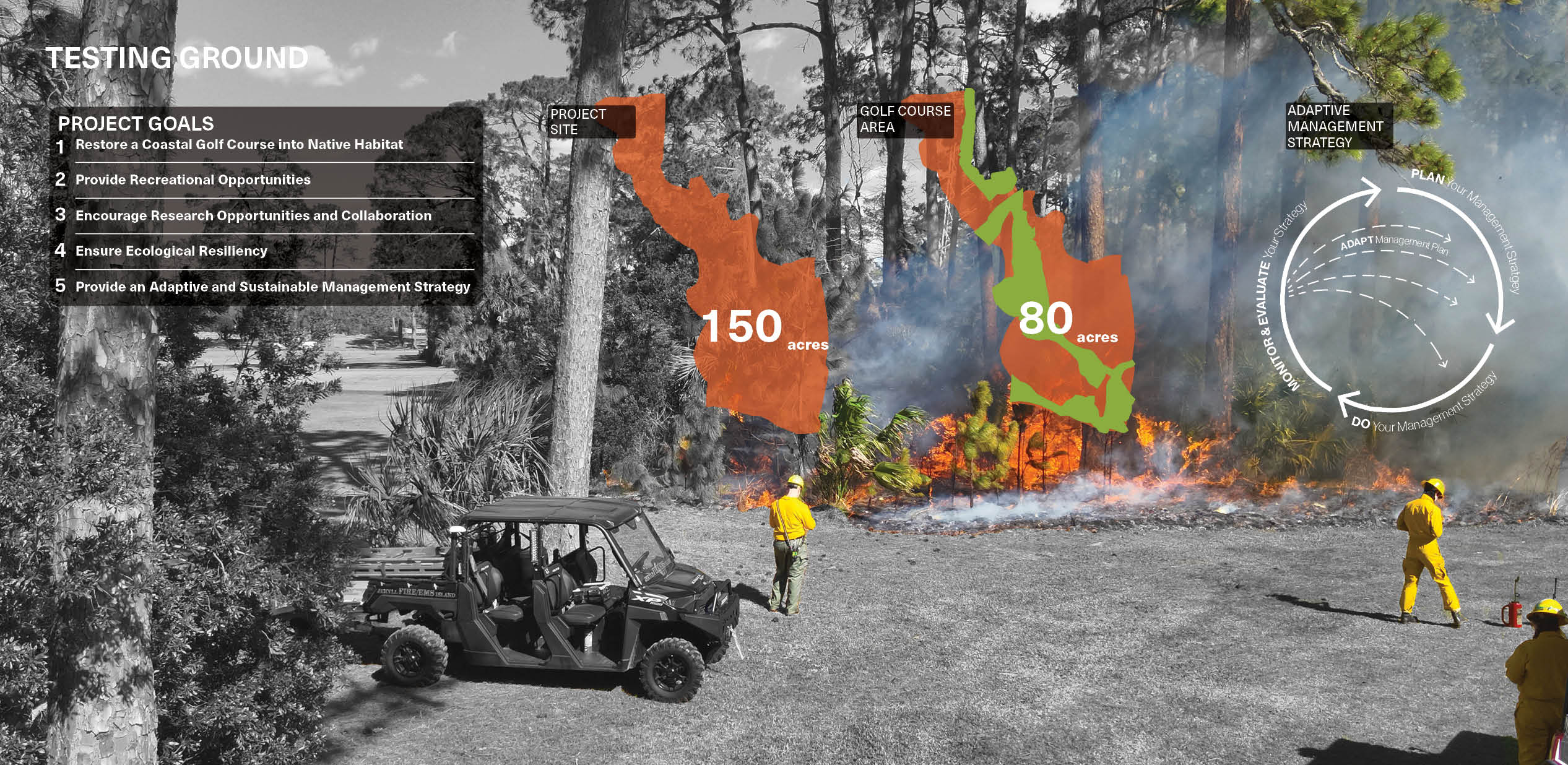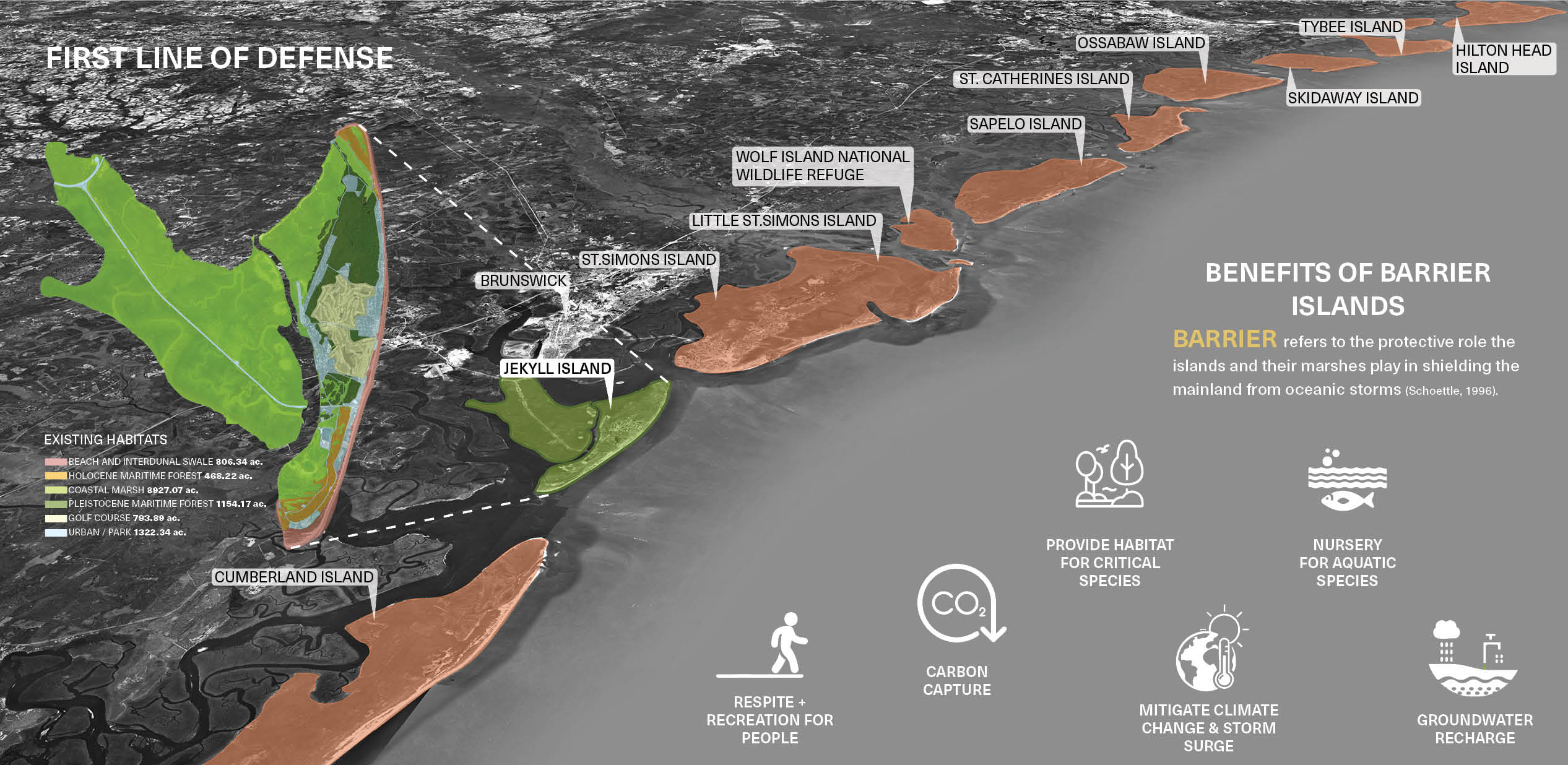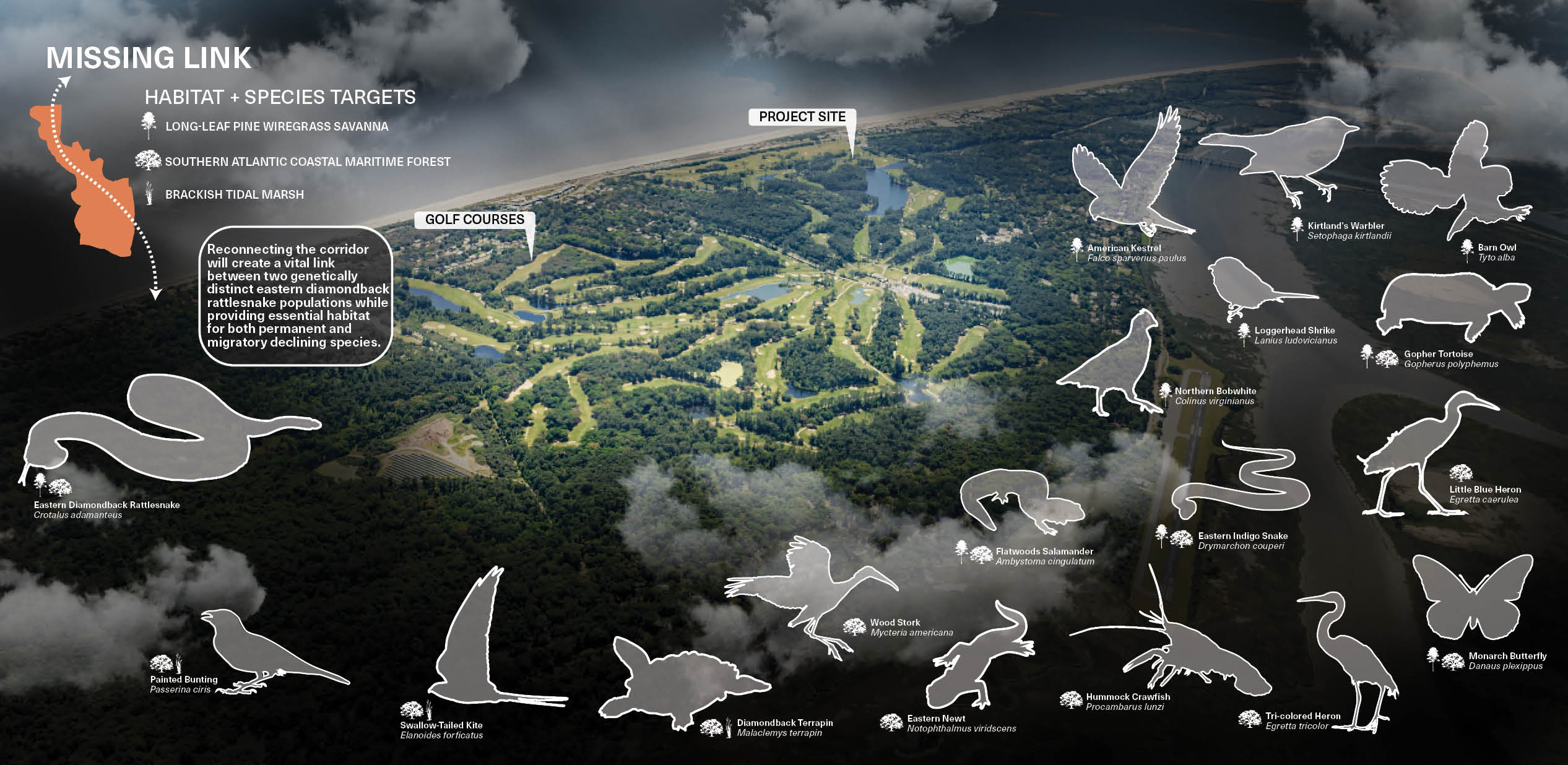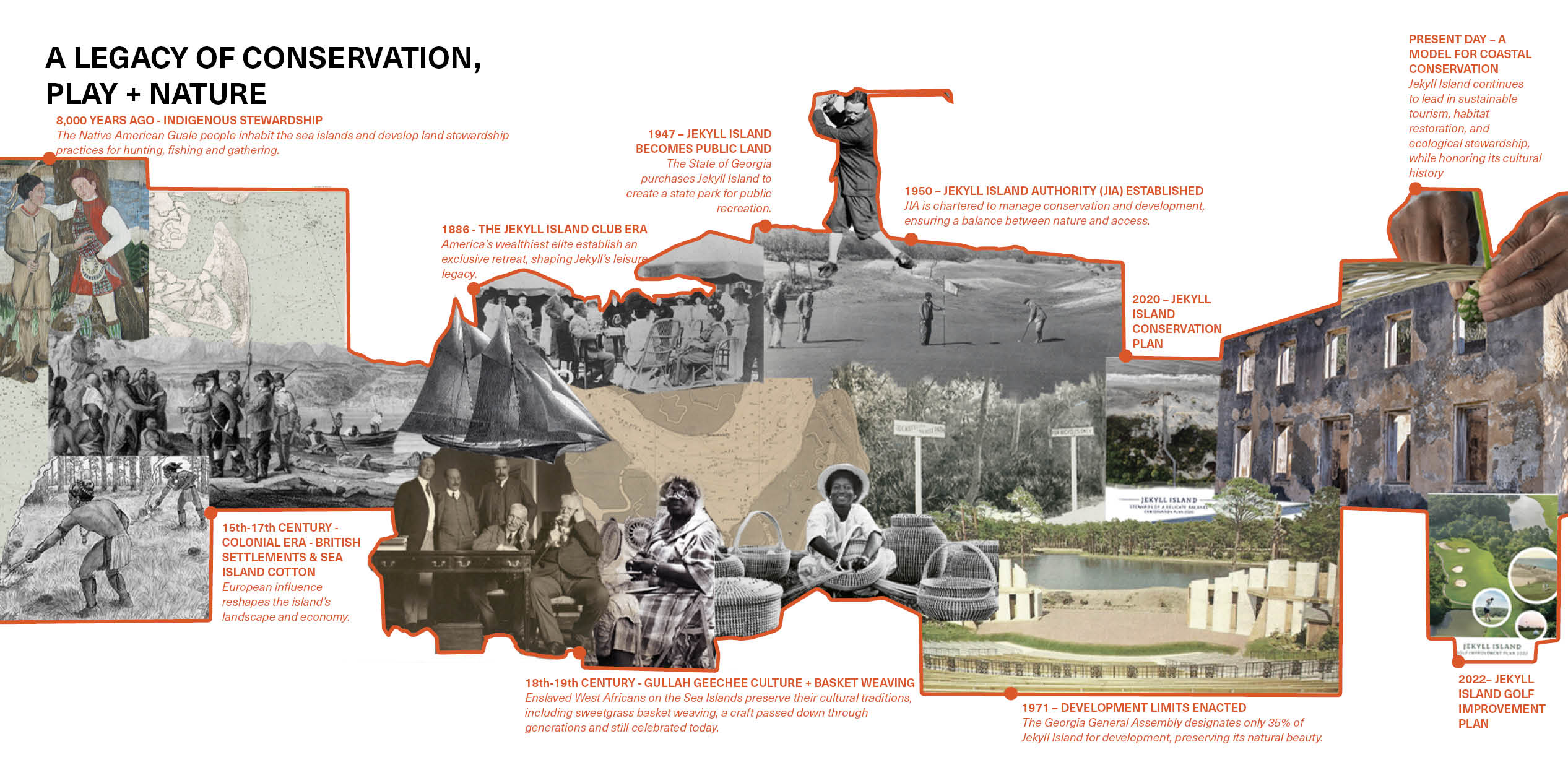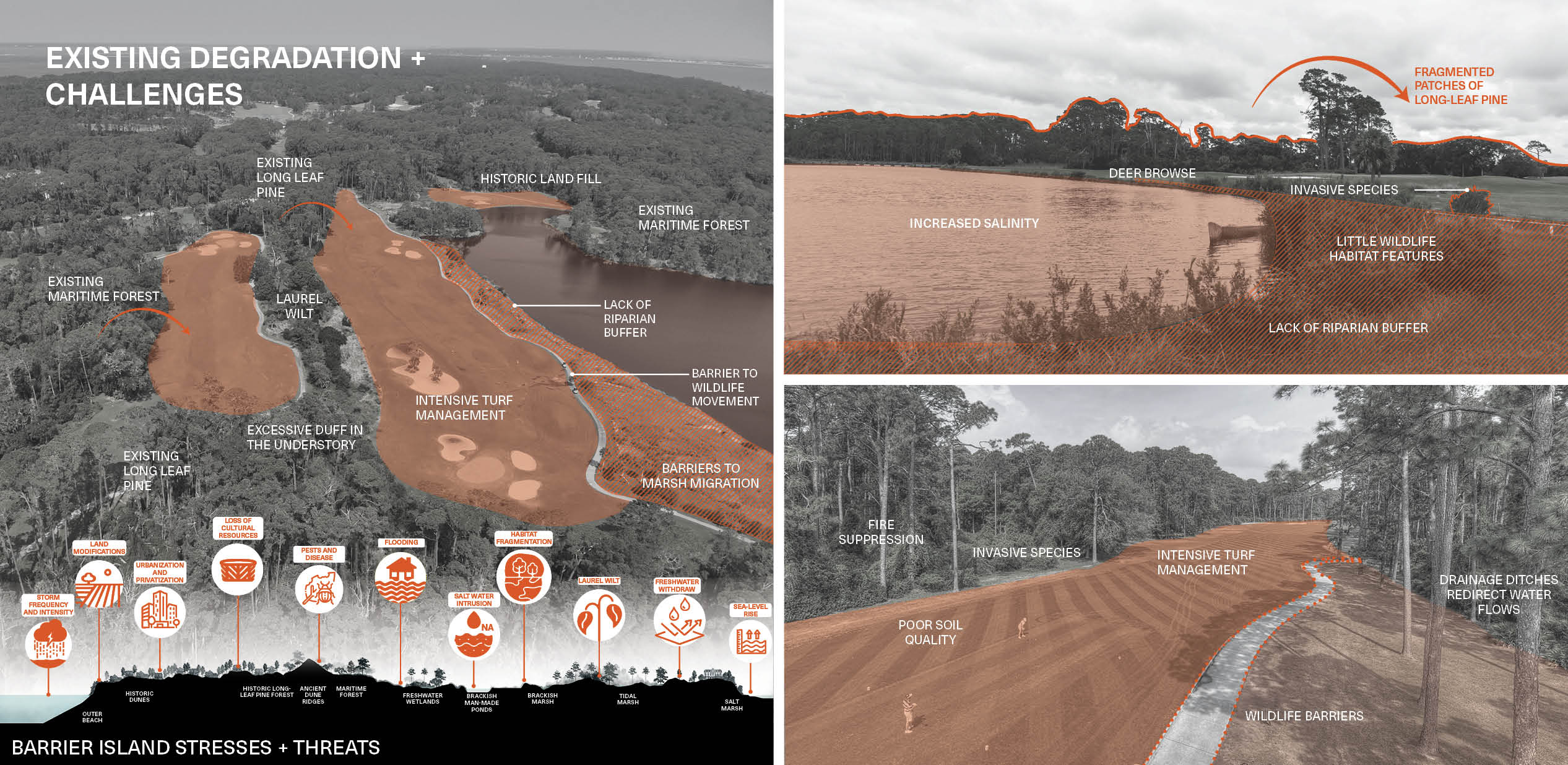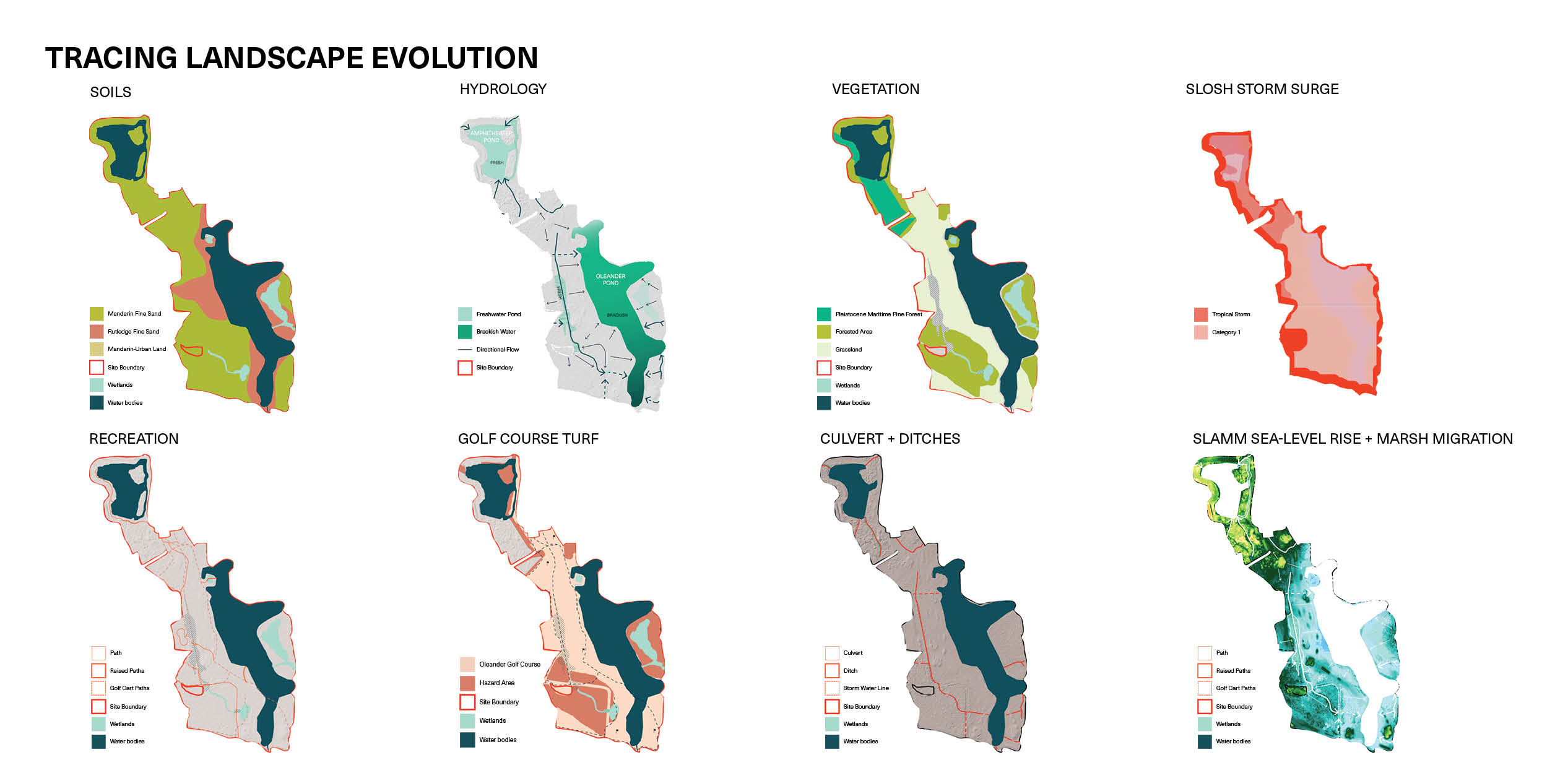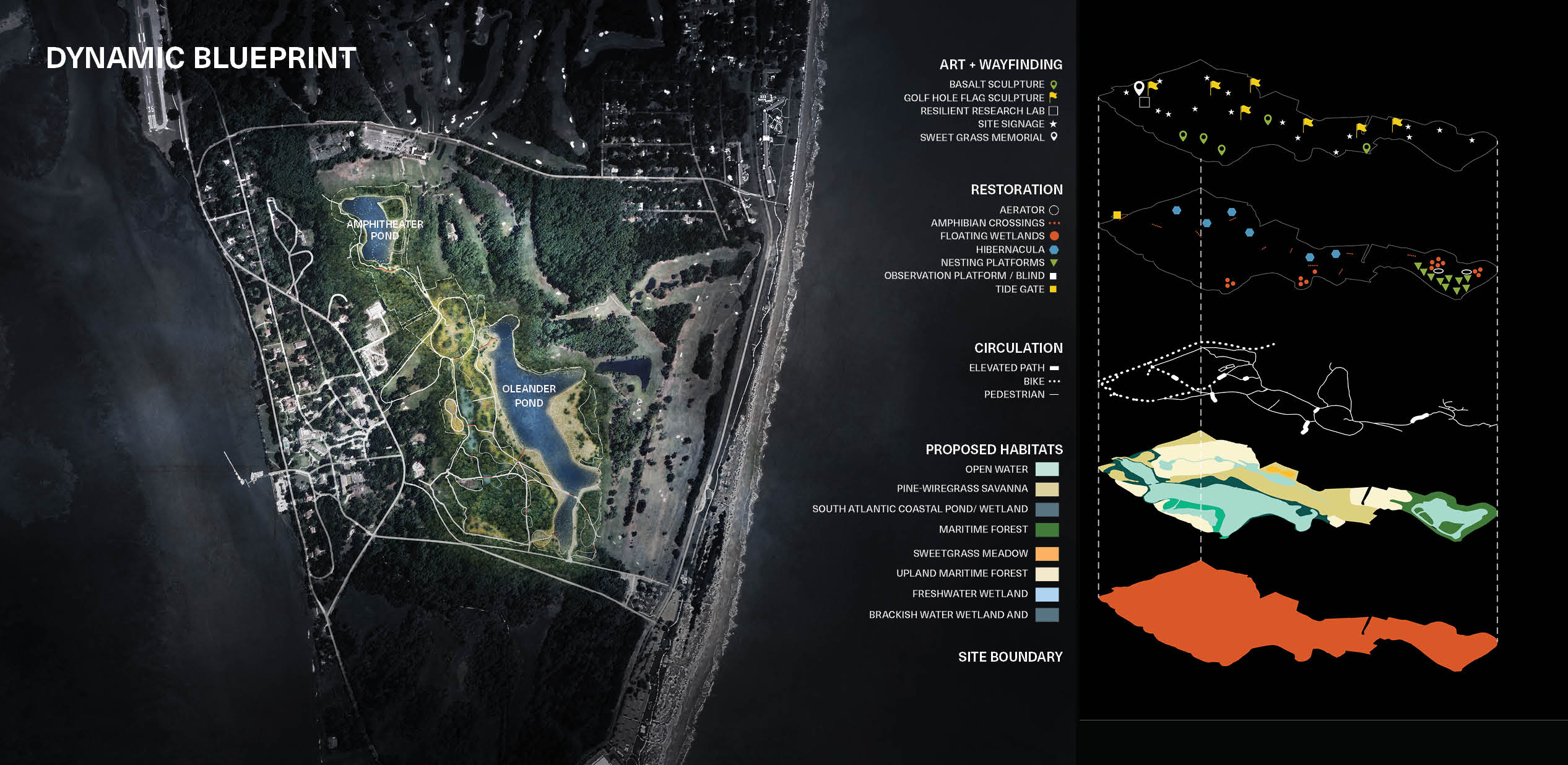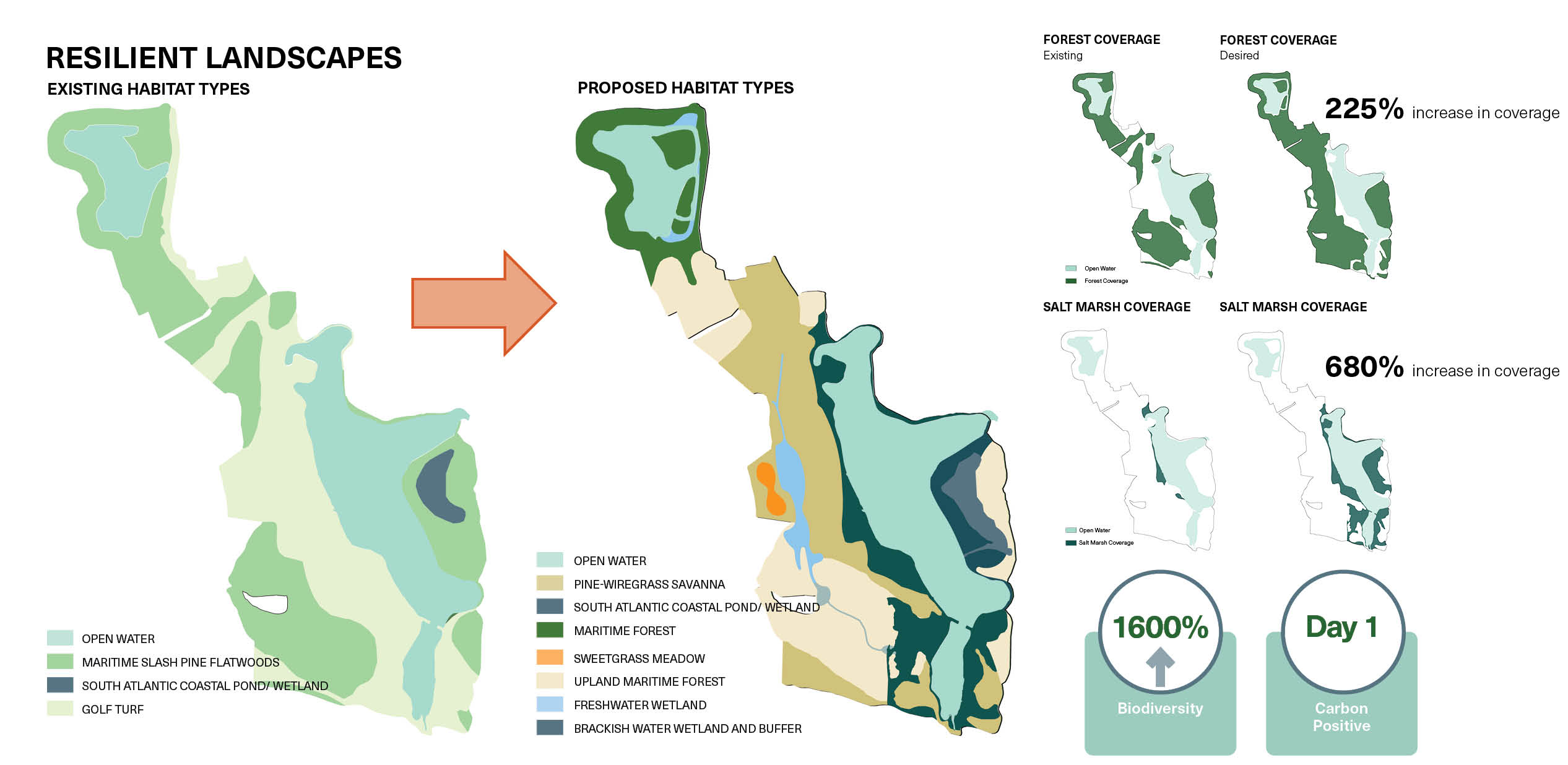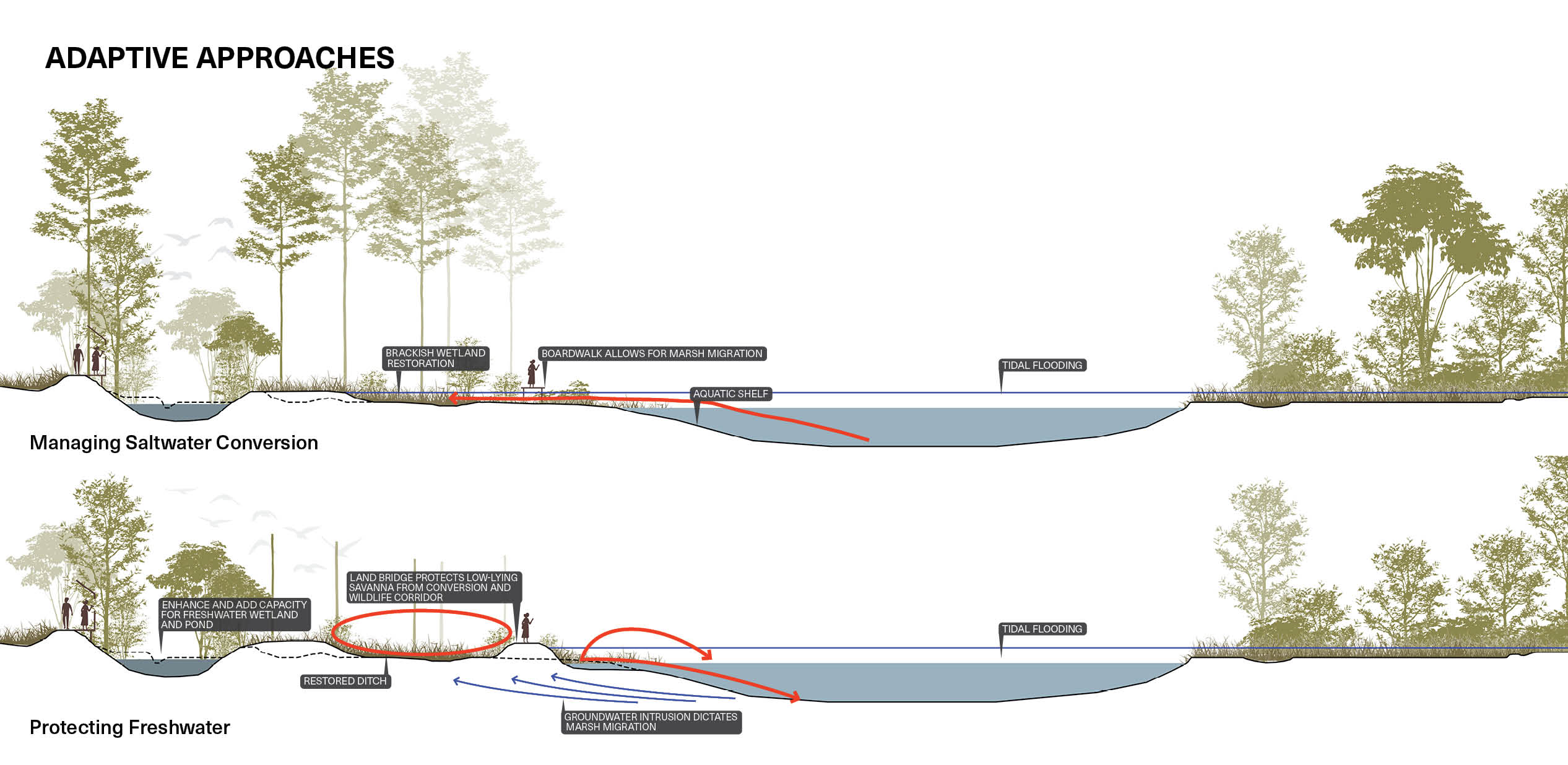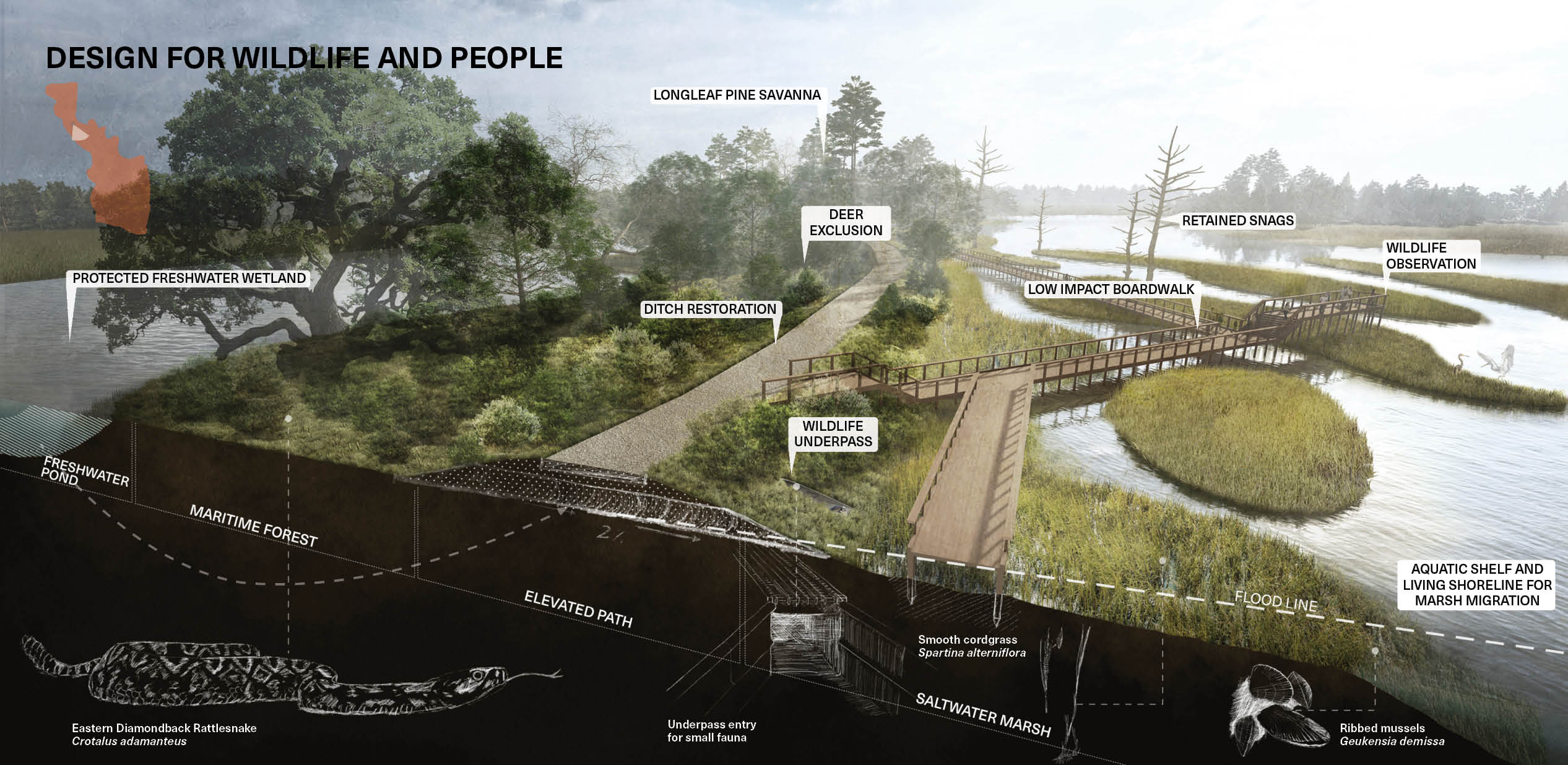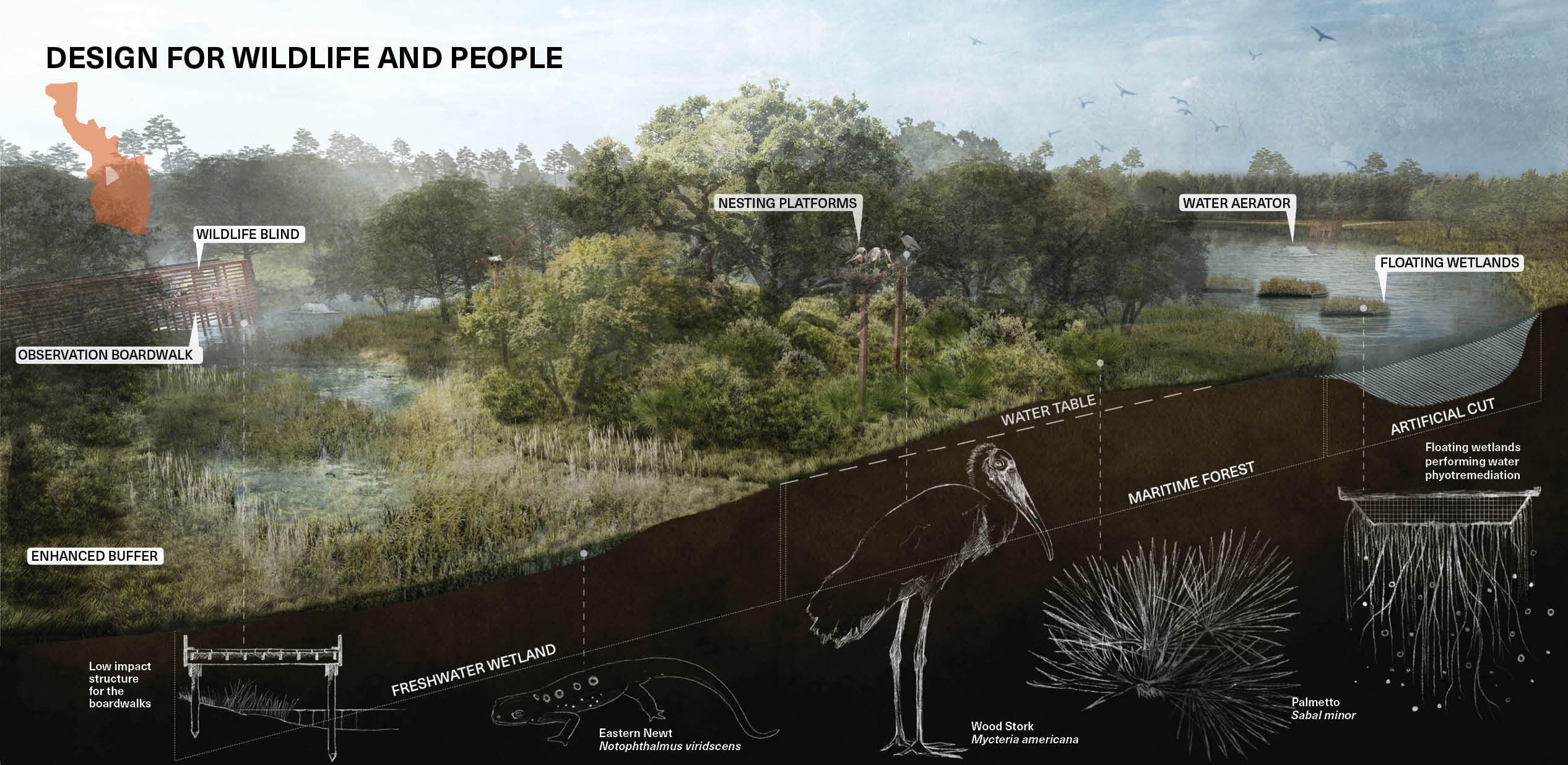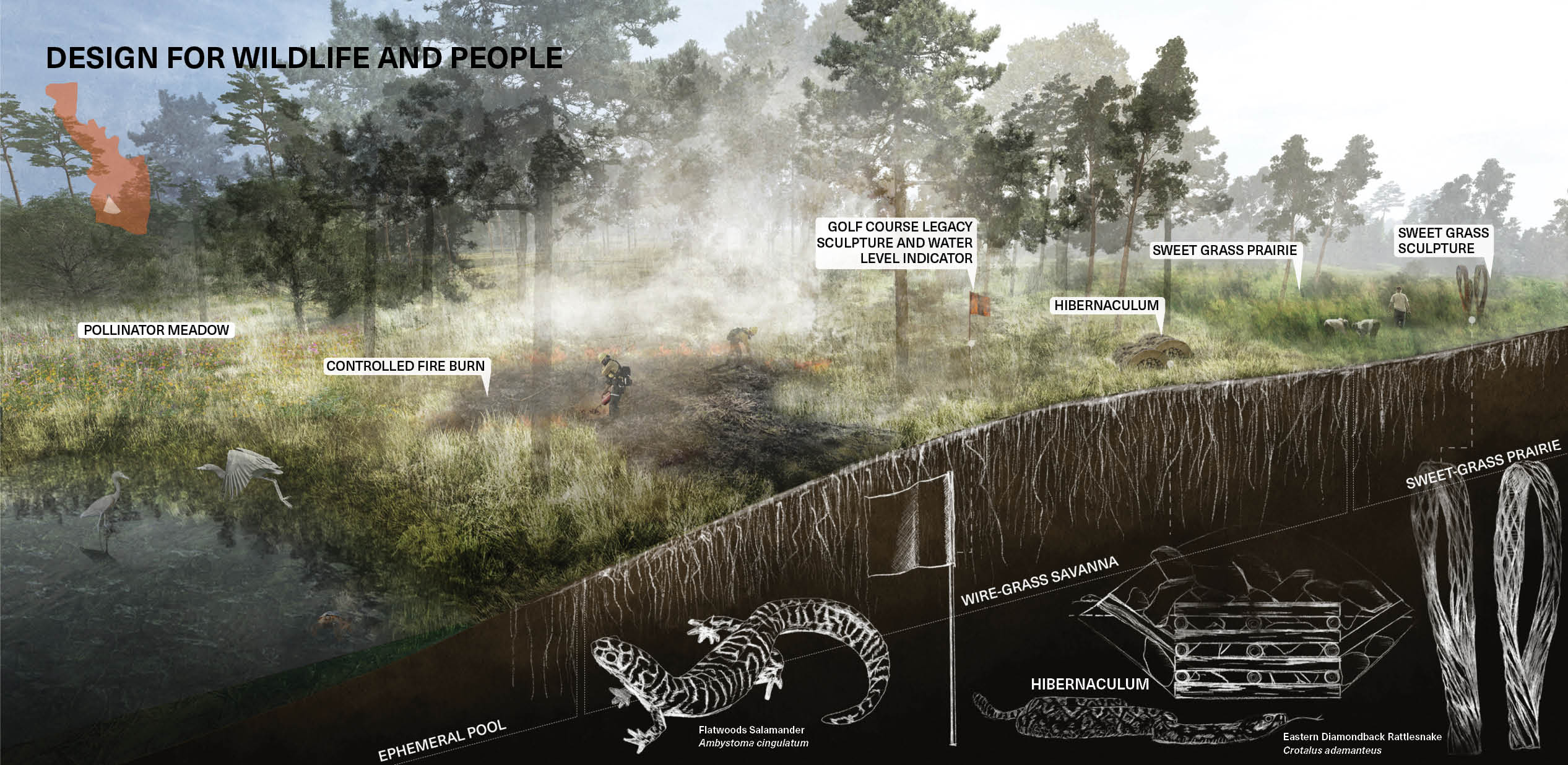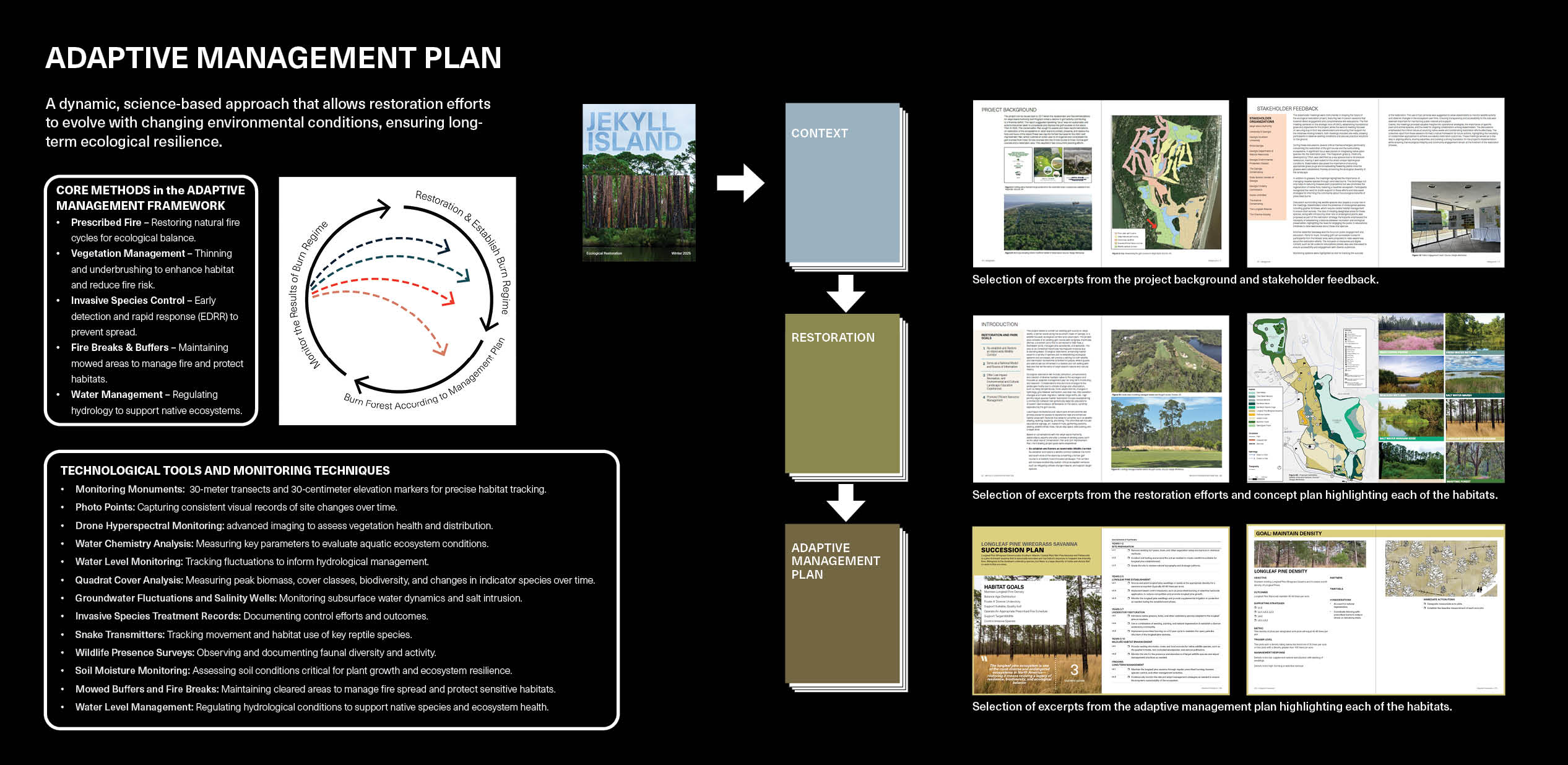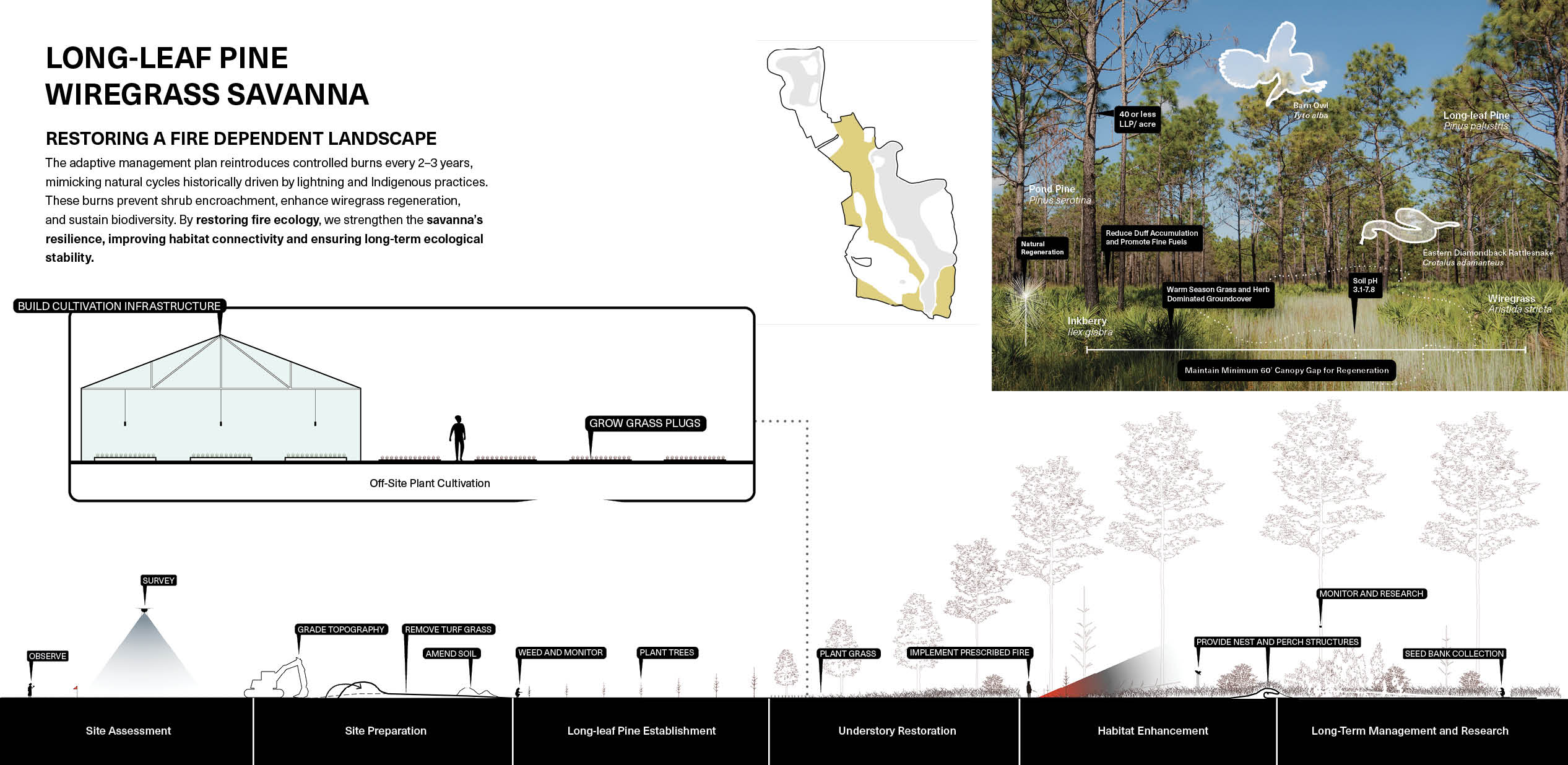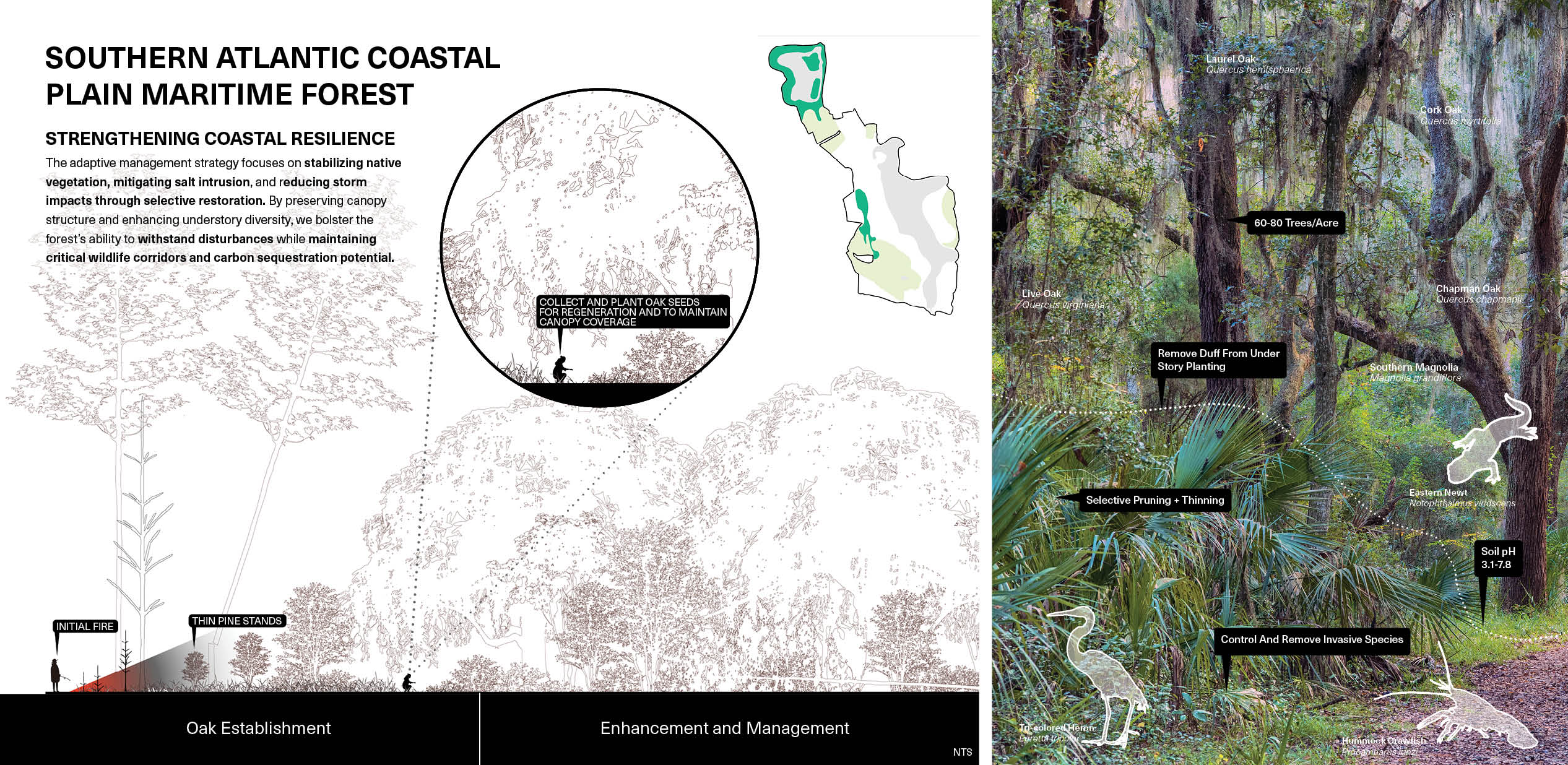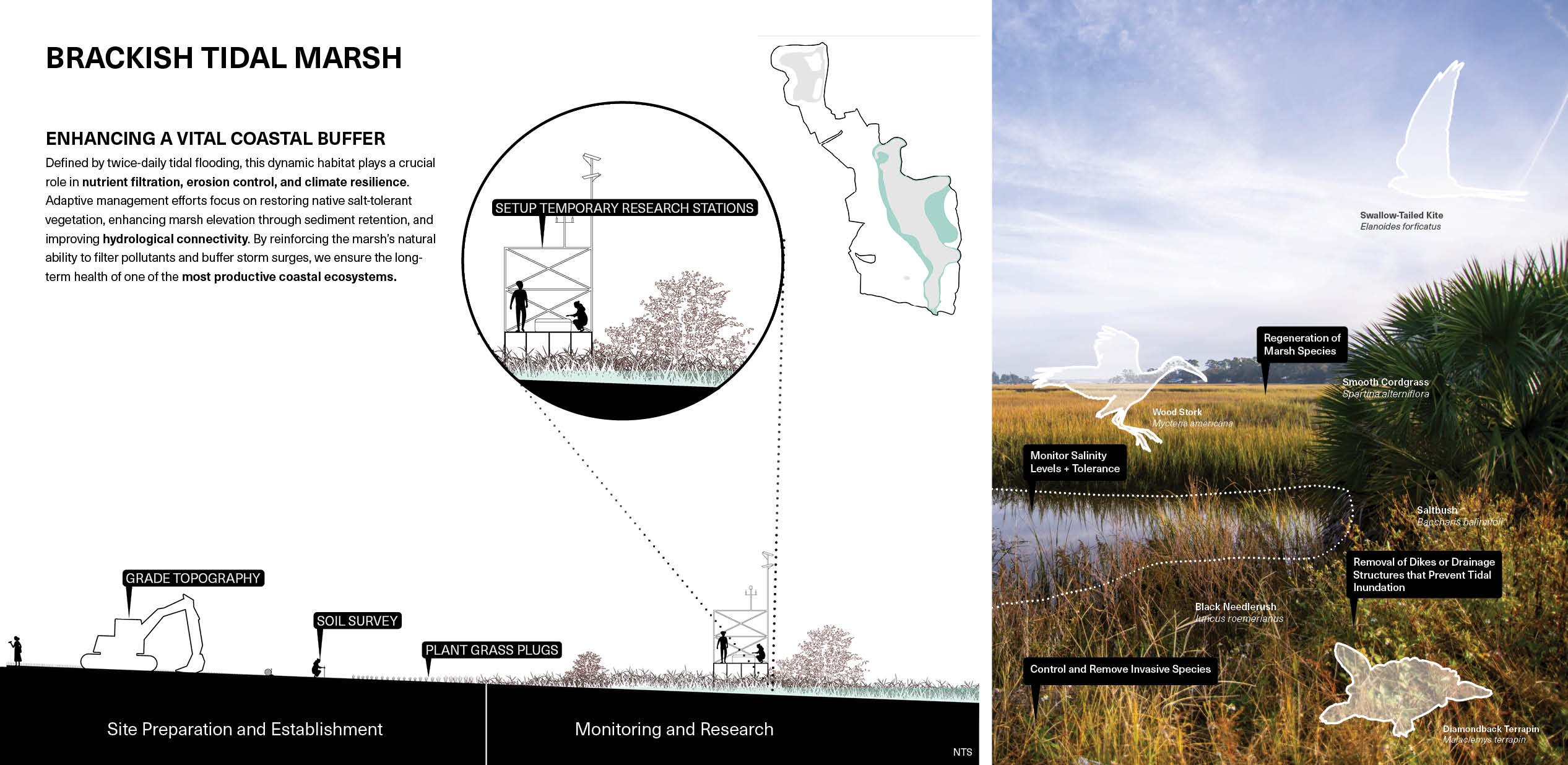Parks/Open Space
Jekyll Island Oleander Golf Course Ecological Restoration
Jeykll Island, Georgia
How restoring native ecosystems can transform an aging golf course into a national model for resilience
Across the U.S. East Coast, centuries of urbanization have fragmented ecosystems and reduced the once-vast longleaf pine savanna to less than 3% of its original range. On Jekyll Island, a barrier island off Georgia’s coast, these pressures intersect with climate change, sea-level rise, biodiversity loss, and the erosion of cultural landscapes. Faced with these challenges, Jekyll Island presented a rare opportunity: to repurpose an aging golf course into thriving, climate-adaptive habitats that honor the island’s ecological and cultural heritage.
Design Workshop led the restoration, working with partners to transform degraded turfgrass into a mosaic of resilient landscapes: longleaf pine savannas, coastal salt marshes, maritime forests, and sweetgrass prairies. Guided by principles of sustainability, resilience, and social equity, the project integrates ecological science with cultural storytelling. Adaptive strategies such as reintroducing fire-adapted species, converting outdated drainage systems into tidal flow channels, and designing for marsh migration fortify the island against sea-level rise while restoring habitat for threatened species.
The restoration also celebrates community and culture. Interpretive trails, art, and educational displays highlight the Gullah Geechee legacy, while reintroducing sweetgrass supports traditional craft practices. Elevated boardwalks and living classrooms invite visitors to experience the evolving landscape firsthand, blending conservation with recreation and stewardship.
As one of the first golf course-to-habitat transformations in the region, the project positions Jekyll Island as a national precedent for sustainable coastal restoration, demonstrating how landscape architecture can merge ecology, climate adaptation, and cultural heritage to protect barrier islands for generations.
Services Provided
Ecological Restoration, Master Planning, Community Engagement, Climate Resilience, Cultural Interpretation
Awards
ASLA/IFLA Global Impact Award, ASLA National
Merit Award for Planning and Analysis, NCASLA
Client
Jekyll Island Authority
